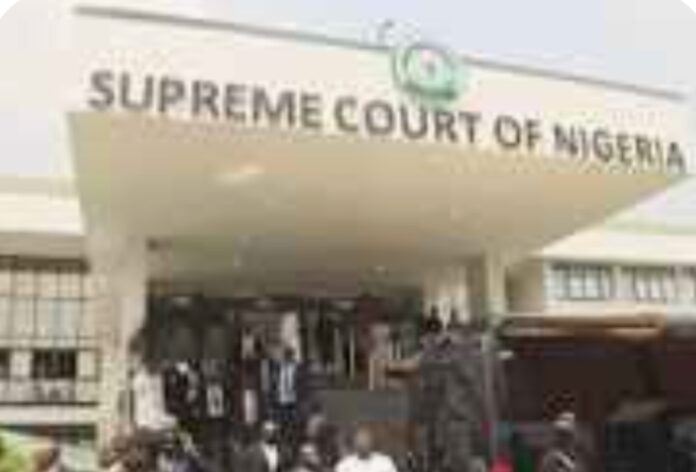The decision sets a powerful precedent for civil society, Journalists, and ordinary citizens nationwide, ensuring that the pursuit of an open and accountable government extends beyond the boundaries of federal institutions.
Nigeria’s Supreme Court has, in a landmark judgement, at the weekend, ruled that, the Freedom of Information Act applies to all tiers of government, ministries, departments, agencies of government and state institutions.
The ruling is a historic judgement that would deepen transparency and democratic accountability at all levels of government.
It also marks a decisive reversal of the 2018 majority ruling by the Court of Appeal, Benin Division, which had controversially held that the FOIA only applies to federal ministries, departments, and agencies (MDAs).
The apex court allowed the appeal by affirming the decision of the trial court that the National Assembly has the legislative competence to enact laws on public records and archives.
The Court noted that the FOIA, enacted to promote transparency, citizen engagement, and accountability in public governance, is binding across the federation.
The case of Austin Osaku v. EDOSACA SC/614/2014 started on January 6, 2014, after a coalition of civil society organisations filed a Freedom of Information request with the Edo State Agency for the Control of AIDS (EDOSACA).
The applicants sought detailed records relating to the HIV/AIDS Program Development Project (HPDP II), including financial expenditures, grants, donor partnerships, contract awards, and criteria for grant allocations between 2011 and 2014.
Speaking after the judgement, President Aigbokhan, Esq., lead counsel for the appellants, hailed the ruling as a model decision that addresses not inconsistency in law but a legislative vacuum at the state level.
Read Also: IPI Nigeria Appoints Idris, Garba Shehu, Egbemode, Ohwahwa, 25 Others To Committees
“The ruling is not just a legal victory—it is a victory for democracy,”
Aigbokhan added.
“This decision is a major leap for the global campaign for probity, accountability, and transparency, with a far-reaching impact on public citizens at the subnational level.
“Our laws must work for all. Once again, the Supreme Court has demonstrated its crucial role as a veritable arbiter of democratic ideals.”
He further dedicated the victory to the activists and NGOs in Edo State who united in their pursuit of a logical conclusion.
“This landmark lead judgement of Hon. Justice Lawal Garba JSC dismantles the long-held excuse by some states for refusing to comply with FOIA provisions due to the absence of corresponding state laws.
“With the Supreme Court’s pronouncement, state governments can no longer deny access to public records on the grounds of legislative non-alignment.
The decision sets a powerful precedent for civil society, Journalists, and ordinary citizens nationwide, ensuring that the pursuit of an open and accountable government extends beyond the boundaries of federal institutions.
Share your thoughts on the story Supreme Court Affirms Wider Coverage For FOIA with Nigerian Kicker in the comments section.





